After opening the Heartland Café in 1976, trips bolstered my positive outlook about life, and probably kept me sane.
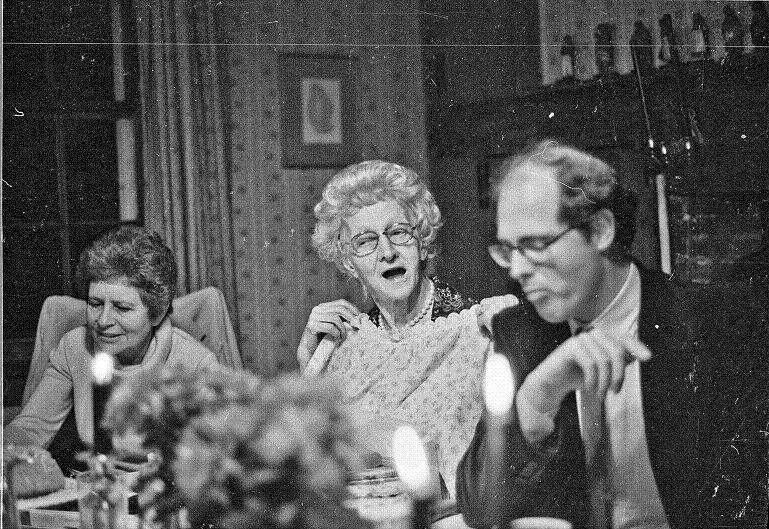
My grandma Anne and my grother Beau, Dinner at the family home, Westport, Connecticut, December 1976. Photos by Michael James from his forthcoming book, Michael Gaylord James’ Pictures from the Long Haul.
[In this series, Michael James is sharing images from his rich past, accompanied by reflections about — and inspired by — those images. These photos will be included in his forthcoming book, Michael Gaylord James’ Pictures from the Long Haul.]
I like to travel. I like leaving Chicago — and I love coming home to the Windy City of Big Shoulders. I call Chicago the “Heartland Capitol, a sometime Paradise.”
My Dad was born in St. Joseph, Missouri, but grew up in Chicago. The city’s wonderfulness was ingrained in my consciousness early on. I’ve been in and out of my beloved city since December 1942, when I was almost a year old and first came to the place the Potawatomi called the land of wild onions.
Pictures from the Long Haul
I came by train, from New York City with my Mom and Dad to visit my grandparents Ethel and Roy, and their youngest son, my Uncle David, who lived in South Shore. Of course I don’t consciously remember a single thing about that trip, but do recall something of my next visit, to a summer cottage in Klinger Lake, Michigan.
I have a faint recollection of Grandpa, Dad, and uncles Roy and Bob going golfing; while the men were gone Grandma made me buckwheat pancakes — buckwheat sourdough pancakes — her special breakfast treat. The family story is that she learned the recipe at age eight, while traveling by wagon across the prairie with her brothers Elmer and Orville (Great Uncle Elmer: he sent me a letter after I was arrested during the Free Speech Movement at Berkeley attempting to talk me out of being a “radical.”)
They left their birthplace, a ranch near Lexington, Nebraska, to live with their maternal grandfather Brubaker in Danville, Illinois, after their mother fell on hard times when great-grandfather Wells, a Nebraska State legislator, “took the horses east to market and never came back.”
The ingredients for Grandma’s simple recipe are buckwheat flour, water, salt, and yeast. A dash of molasses is permitted. Left to stand overnight, the batter bubbles and makes delicious pancakes, great with butter and maple syrup, or Karo syrup, honey, or jam. Buckwheat pancakes were on the Heartland Café’s menu since the first day we served breakfast. Somewhere along the line the recipe was modified to substitute rice milk for water.
I remember well my third visit to Chicago, in the spring of 1956. I was 14 and Dad brought me along on a business trip. We flew into Midway Airport, took a cab downtown, and stayed at the new Executive House Hotel on Wacker Drive. With Uncle David, who was then studying law at the University of Chicago, we went to Mr. Kelly’s and the London House, the jazz dinner clubs.
Sometimes I ventured out alone for a taste of Chicago.
Sometimes I ventured out alone for a taste of Chicago. I walked around Rush Street and visited a store selling “gambler’s jeans,” black and gray striped denim pants I’d seen advertised in the pre-Playboy girlie-mag Adam. I rode a bus up Lake Shore Drive and another one west on Irving Park Road to Ray Erickson’s Speed Shop, which advertised in the cherished Hot Rod Magazine which I anxiously awaited every month.
I’d never been to a speed shop; it was “cool.” I dug the spun aluminum and chrome parts on display, most of which I’d only viewed in ads or in photos of hot rod and custom cars. It didn’t take much to make me happy.
These trips were the first of many, during which I experienced the good feelings traveling always brings as I start out on a journey, anticipating my arrival, wondering what might happen and what I might find. When I travel I look forward to going, am glad to be away, and then look forward to heading home — all at the same time.
Coming home to Chicago I usually feel great, and full of optimism. After opening the Heartland Café in 1976, trips bolstered my positive outlook about life, and probably kept me sane. Frequently a variation of something I ate on the road would end up on the Heartland’s menu. Traveling was an opportunity to take a break, have a breather. It advanced my consciousness and knowledge — spiritual, political, financial. To this day I love the hope and anticipation that something exciting, even magical, might happen.
Regular visits to soak up my family roots at home in Westport, Connecticut, provided nourishment. And I often hit the road or flew to places known and unknown, with the intention to “turn left off the interstate” and discover America.
I am a patriotic dude; I love my country.
I am a patriotic dude; I love my country. That said, I’ve long been critical of my government, a criticism that has only continued to grow. It is hard, embarrassing, and, at times, sad to be “an American.” We’ve done good things, but too often we are not “the good guys.” Traveling to other countries is a corrective eye-opener, and I was a beneficiary of that much-needed perspective for years, when I crossed borders on visits to Canada, Mexico, Nicaragua, Costa Rica, Ireland, Cuba, and the old USSR.
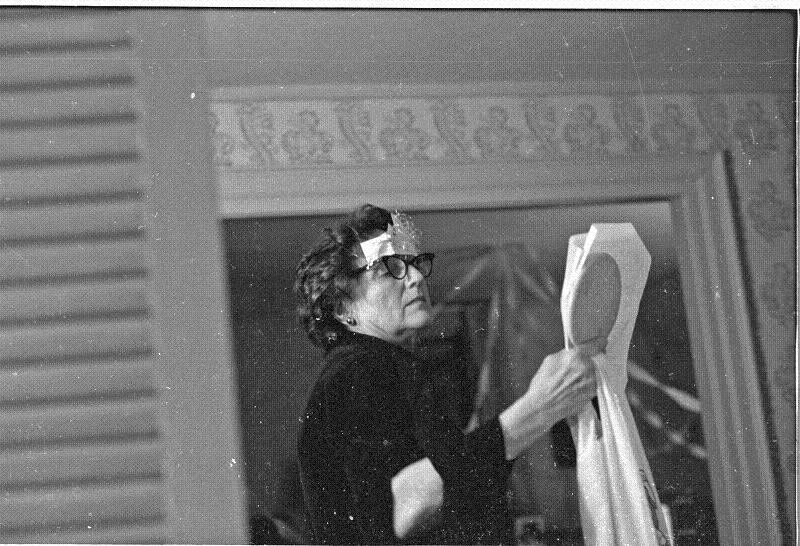
My mom Florence, after dinner play: “ Who is the wackiest of us all?” Westport, Connecticut, December 1976.
Christmas 1976 was spent at my family’s old farmhouse on Wilton Road in Westport, Connecticut, where I grew up. My mom Florence pulled off her usual succession of good meals with family and friends at the big table in our dining room (the home’s original kitchen), with its walk-in fireplace.
Dinner included tales — distorted, from my point of view — of family history, and lively discussions, debates, arguments and laughter. My sister Melody and son Jesse organized a play performed in the living room. Mom had a featured role, and using a mirror as a prop said something like “Mirror, mirror: who is the wackiest of us all?” I grew to truly enjoy being with my family.
A very cold Chicago winter preceded my next trip. In April of 1977 I was more than ready to split town and hitchhiked first to St. Petersburg, Florida, and then to New Orleans for the Jazz and Heritage festival. I started at the South Water Street Market where I regularly picked up food for the Café, and caught a ride to the Calumet Truck Stop outside Chicago. Hours later I caught another with Ray Grimes, aka “Blue-eyed Boy,” driving a 1976 International. He talked constantly on his CB to the likes of “Chatterbox” and “Rascal” as he hauled sausage for Swift in his Williamson truck.
In Wilson, North Carolina, at the Honeycutt Truck Stop, I got a ride with brothers Matt and Glenn McGee of High Point. We talked about race, class, and politics ‘til 2 a.m., when they dropped me in Walterboro, South Carolina. There I ran into Tom T. Hall who ‘til then had been one of my favorite country singers. Old Tom was sloshed, snarly, mean, and hostile. After getting off his tour bus (onto which I’d been invited) I got another ride and we talked about race, the South, and Jimmy Carter.
I made it to St. Petersburg, home to my relatives on Dad’s side of the family. I spent a week in the nurturing embrace of my Florida family, staying with my cousin Judy and her children. I went out to dinner with my cousin Tom and his wife Mary. Uncle Bob flew me to Ft. Lauderdale in his Grumman airplane where, as founder of Raymond James Finance, he spoke about the preservation and distribution of assets to a group of Westinghouse retires. Such new information was interesting and educational to a person like myself — finance and investment not being much in my consciousness.
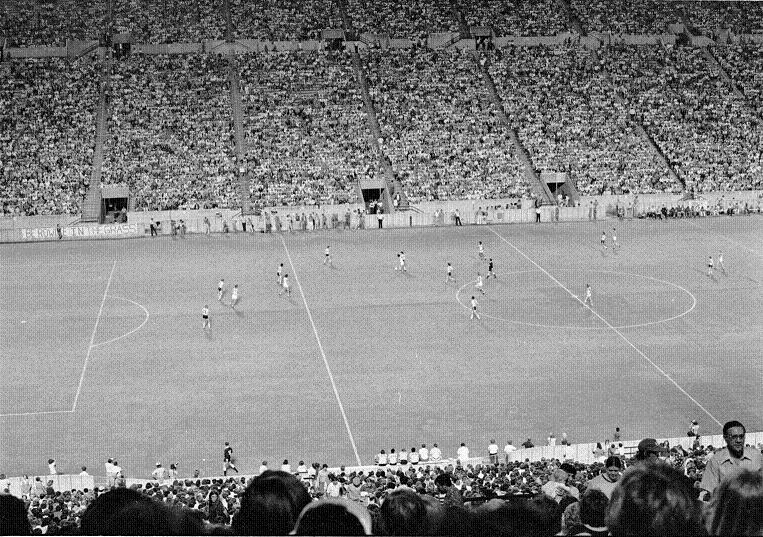
My first professional soccer game: Tampa Bay Rowdies beat the Chicago Sting, Tampa, Florida, April 1977.
I walked to the Chattaway drive-in every day for coffee and a burger.
I walked to the Chattaway drive-in every day for coffee and a burger. I hit the St. Pete YMCA for weights. Judy and her kids took me to my first professional soccer game, where the Chicago Sting fell to the Tampa Bay Rowdies. I helped my Grandma Ethel tend to her beloved orchids and spent time each day on her veranda overlooking Little Bayou, reading, writing, and talking with Uncle Roy.
My cousin Kit, an all-state high school guard who played football at Duke, took me out partying and dancing, and introduced me to fried mullet at Charlie’s Oyster Bar on St. Pete Beach. I returned to the Spanish Fort Desoto, where Tom and I had camped out when we were 13. This time I collected shells to we used as ashtrays at the Heartland Cafe.
On the morning of the new moon I hitchhiked north along routes 19 and 27, through Homosassa Springs, Chiefland, and Cross City. I made it to my cousin Wendy’s in Tallahassee and at sunset went for a run on the Leon High School track. The next day I hooked up with my cousin Robin and her kids who took me to “The Sinks” for a wonderful skinny-dip in a spring-filled sinkhole. After the dunk they took me around town, to a potter’s workshop, the Leon County Co-op, and the Tap Root Juice Bar.
I rode out of Florida with a Vietnam Vet who was critical of the war, and then with an older fellow who called President Carter a hypocrite. Walking along the highway in Pensacola, I passed Navy Ships and an abandoned donut shop named Donna’s — I was starving and could have used a donut about then. A fellow driving a Green Thumb plant truck dropped me in Mobile, Alabama, a city I later returned to in 1991 for 43 days when I played a bad guy in Andy Davis’ Under Siege. Hippies in a van carried me to a truck stop in Slidell, Louisiana, in time to observe the shop owner kicking a stranded young black hooker out into torrential rain.
After riding in trucks, walking, hitchhiking, and taking a cab, I arrived in New Orleans.
After riding in trucks, walking, hitchhiking, and taking a cab, I arrived in New Orleans. I got a room at a YMCA, and later, during a heavy tropical rain, ran in Audubon Park on a flooded golf course. A great day was topped off memorably by an evening spent taking in the greats Allan Toussaint, Clifton Chenier, and Irma Thomas performing at an event called the “Steamboat Stomp,” which took place on an old paddlewheel boat cruising up and down the mighty Mississippi.
The Louisiana Jazz and Heritage Festival is a wonderful event held yearly at NOLA’s fairgrounds and racetrack. The year before, when Café co-owner Katy and I had been in New Orleans, we met some folks from the Good Food Company; this visit I helped them set up their stand selling Red Zinger Tea and Sun Cakes.
Over the course of the weekend I shot some super 8 film and listened to amazing performances by Deacon Jones, the Xavier College Jazz Band, Bonnie Raitt, Uganda Troop, Dixie Blue, Lightin’ Hopkins, Clifton Chenier, Allen Fontenot and his Country Cajuns, and one of my all time favorites, Fats Domino.
I had seen Fats previously, in the late 1950’s at Alan Freed rock ‘n’ roll shows and again at a dance in Bridgeport, Connecticut — I’ll never forget that night. After the dance I was sitting in Mike Youngman’s car outside his parent’s store on that cold night. Two glamorous babes in mesh stockings came out of a bar next door, got in back of the car next to ours, and started making out. One of them said, “I’m freezing my fucking balls off!” That was a Wow! moment for me.
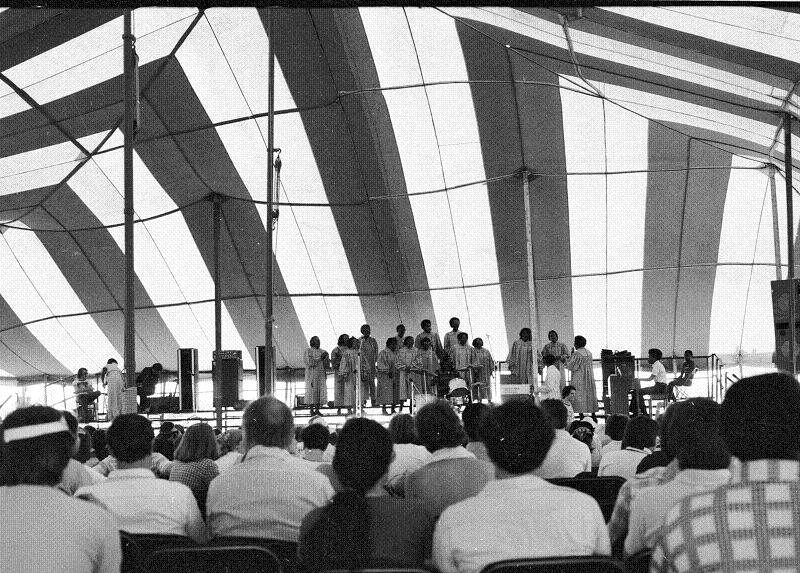
Gospel Tent where I took refuge and soaked up a big dose of spiritual inspiration, Jazz & Heritage Festival, New Orleans, April 1977.
Back in New Orleans at the Festival I took a dancing and partying break and went into the big red and yellow Gospel Tent, where I soaked up a big dose of spiritual inspiration before heading back to Sweet Home Chicago and full-tilt work at the Café.
That summer I went to Hell, Michigan, for the first reunion of Students for a Democratic Society (SDS).
That summer I went to Hell, Michigan, for the first reunion of Students for a Democratic Society (SDS). Thirteen years after SDS had permanently captured a chunk of my heart and soul with its call to “let the people decide” and to “build an interracial movement of the poor,” I found myself at a labor camp with old comrades. We gathered and shared stories; I talked about the Heartland Café, and joined discussions on where SDS, the country, and the Movement were.
The Vietnam War was over. New issues were coming to the fore; more work needed to be done. I was beginning to learn that “more needs to be done” goes on forever, and being with these folks inspired me. While a variety of interests, attitudes about militancy, focuses, and approaches to politics were represented, collectively we continued to contribute to meaningful and significant changes in the Nation’s culture and politics.
In February, six months later, I split to warm and sunny Mexico. This was my first real travel south of the border since 1962, when I had my 1956 Triumph Thunderbird adventure. This time I flew to Atlanta and then Houston, where I explored the airport, fended off Hare Krishnas, and called my mom and then a friend, for his suggestions on people and places that might enhance my trip.
From Houston I flew to Cozumel and on to Merida in the Yucatan, where I joined two Canadians in a cab. Delton Campbell was a big tall guy from Edmonton who published a magazine called Roughneck, which reported on oil field activity and services in Canada; his squeeze was the petite dancer Stephanie Ustina. We all stayed at the Hotel Margarita and ate regularly at Restaurante Merida Internacional.
I consumed delicious daily doses of ‘juego de zanahoria’ (carrot juice) from the abundant ‘juego’ stands.
I consumed delicious daily doses of juego de zanahoria (carrot juice) from the abundant juego stands and walked far and wide, exploring the town. At the Teatro Pedro Infante I watched Ali el Invencible, a very long flick featuring all of Muhammed Ali’s fights. It was Carnival season, so there were parades and parties to revel in. And we went to the cockfights.
A boutique owner named Fernando told me about the cockfights — peleas de gallos. What a scene: yelling, screaming, cheering, and money changing hands. At the roulette wheel and blackjack table I won 430 pesos and met a fighting gallo trainer named Lorenzo Tamayo, who watched me win and invited us to visit his village, Telchac Pueblo.
After the fights Fernando lured me back to his place with the promise of weed. After a little smoke, tequila, and fending off his advances, a gorgeous transvestite, a performer, came to the house with an older woman seamstress to be fitted for a costume. Fernando and the transvestite dropped me at the Restarante Merida Internacional. I told the gorgeous one she was very beautiful.
We took a bus ride to Motul, then another, missing Telchac Pueblo and ending up in Telchac Puerto on the Gulf Coast. We helped a fellow named Arturo Sanchez with his boat and I ran for miles along the beach. Del and Steph were waiting for me when I returned; we had missed the last bus out. Now it was dark. We couldn’t find any cabs and saw no cars. Nada.
We started walking the17-kilometers to Telchac Pueblo, and finally got a ride at the halfway point. Lorenzo set us up in hamacas for the night and the next day showed us his gallo training site and took us to a beautiful natural well, a cenote, for a dip. He arranged a place to stay that night. While heading to the outhouse, Stephanie was accosted by a guy making heavy advances. I found the fellow and did my best to educate his ass, using my primitive best Español (“spanglish”) to discuss “respecto para las mujeres, las hermanas,” respect for the women, the sisters.
The next day we hung out in the town square, el zocalo, watching carnival activities — including a crowd of kids tormenting a guy in an animal-monster-costume. And me, el big blond gringo? I got a lot of attention dancing my ass off with the Reina de la Carnival. Unfortunately, the Queen drank too much and didn’t make it to the official dance later that night.
A night bus ride took Del, Steph, and me to Cancún. This was just the moment when tourism was beginning to transform the area. Not able to afford a room, we were fortunate to meet a young worker who brought us to a tent city, the sleeping quarters for workers in the tourist industry. We slept on cots under mosquito netting, surrounded by exhausted, sleeping workers. In the morning a bus east took us through Chichén Itzá to Tulum, in the new state Quintana Room on la Costa Caribe.
Tulum was a destination place for low-budget, hip travelers and backpackers.
Tulum was a destination place for low-budget, hip travelers and backpackers. I spent the last days of my trip there, mostly with Canadians, including the Turgeon brothers. Jerry was from Smooth Rock Falls and George, a conductor on the Canadian Railway, lived in Thunder Bay, Ontario (where I later visited him). Our crew included travelers from Europe, a Peruvian hippie, and an Idahoan, Paul Bates. I slept in a straw-roofed hut on a hill, in the gentle curve of a hamaca. It featured a bucket with newspapers for a toilet and a window with a view of the Sea.
A walk down the beach took us to a Pablo’s Restaurante, a simple shack on the beach that served fresh-caught grilled fish and salad, beans, and tortillas. Each evening we gathered around a campfire by the sea, getting high, drinking, sharing information, and telling tales. One morning I spotted two very distraught women who discovered their backpacks were missing when they came out of the water. As Mexico became a popular travel destination for North Americans, they learned the hard way that “idyllic and cool” doesn’t necessarily translate to “safe and secure,” a sad but educational lesson for unfortunate travelers.
This South of the Border trip was a true vacation. Once again I joyfully returned to my beloved Chicago, and my base camp at The Heartland. This became the wonderful rhythm of my life, seeing more of the country and the world and returning home. And life continued to become richer and more rewarding as I began to engage in electoral politics: helping David Orr be elected as our Alderman in the 49th Ward, then working on Harold Washington’s campaign to become Mayor of Chicago.
I experienced the day-to-day joy and grind of running a popular joint, and a few more years of bachelor life before meeting a true love and enlarging my family.
[Michael James is a former SDS national officer, the founder of Rising Up Angry, co-founder of Chicago’s Heartland Café (1976 and still going), and co-host of the Saturday morning (9-10 a.m. CDT) Live from the Heartland radio show, here and on YouTube. He is reachable by one and all at michael@heartlandcafe.com. ]

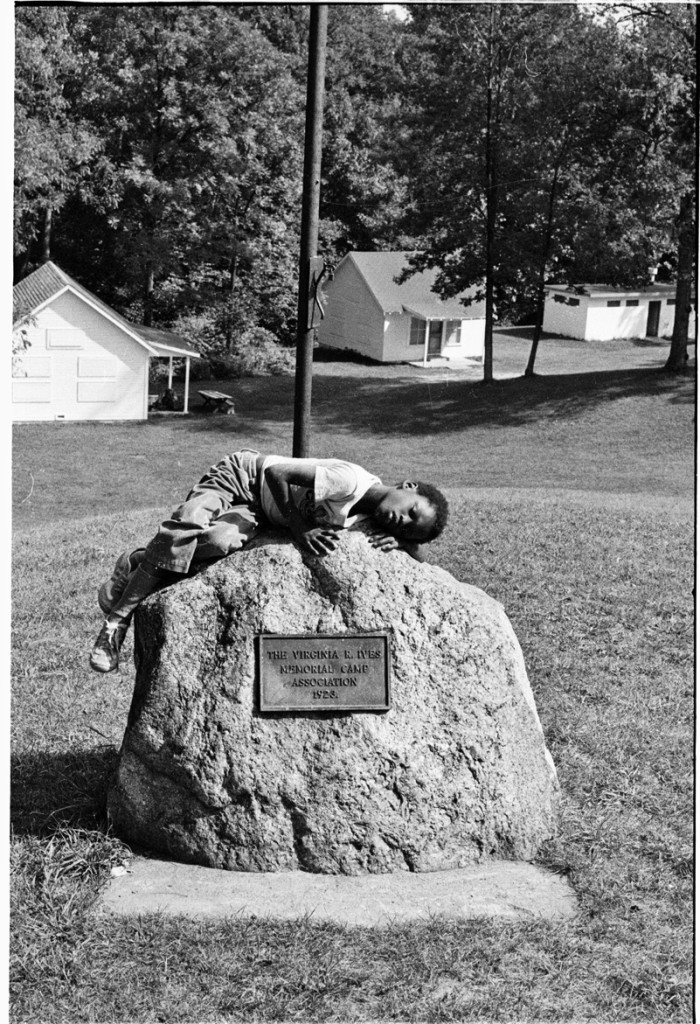
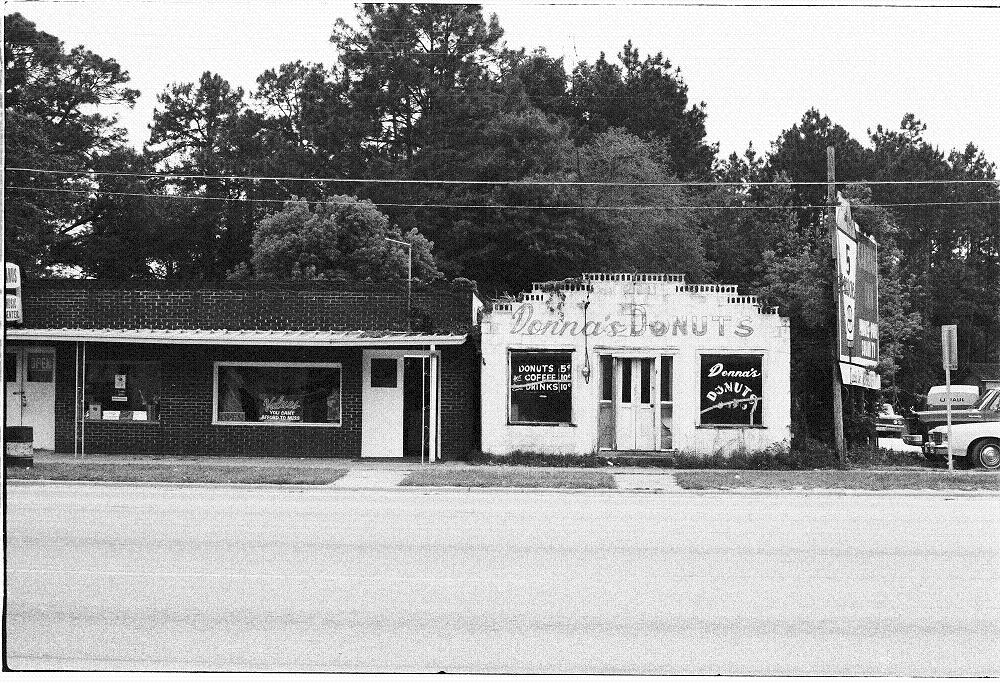
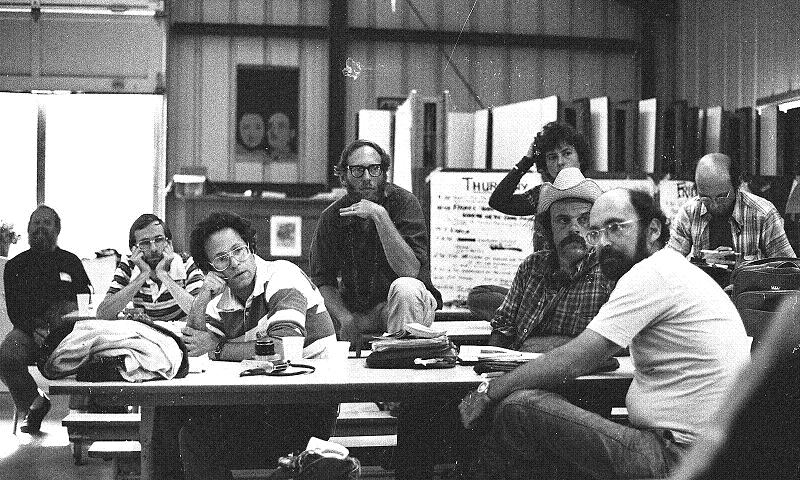
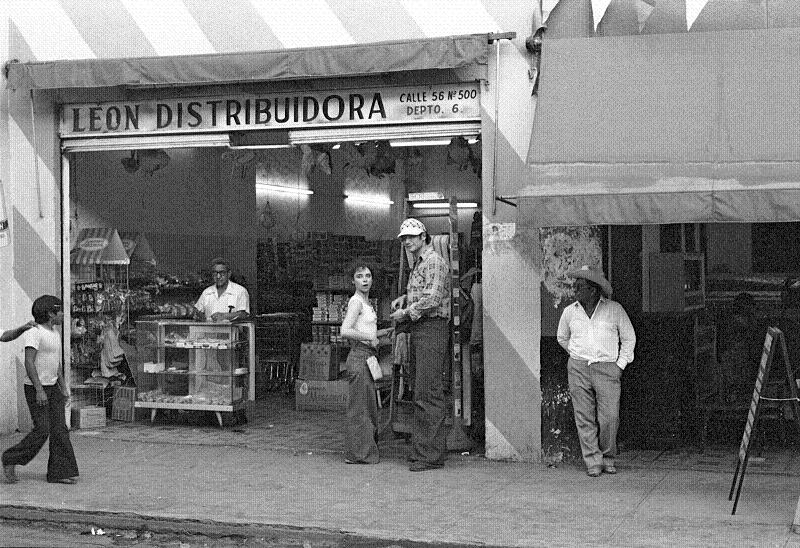
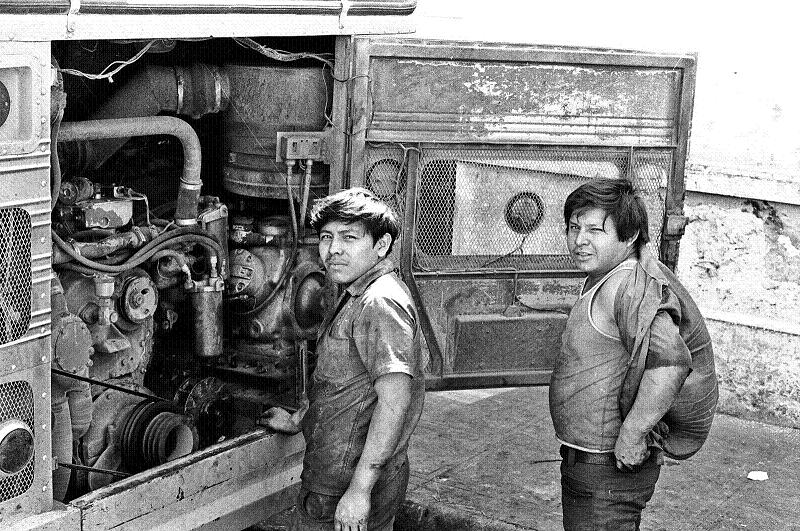
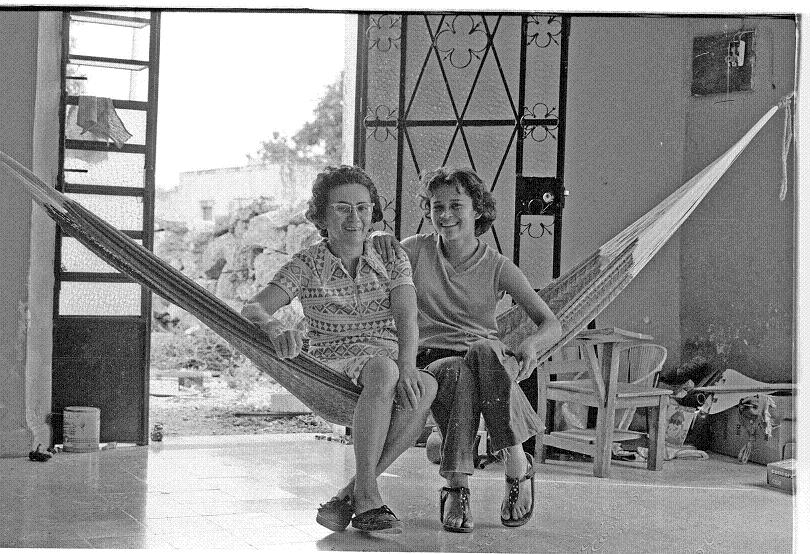
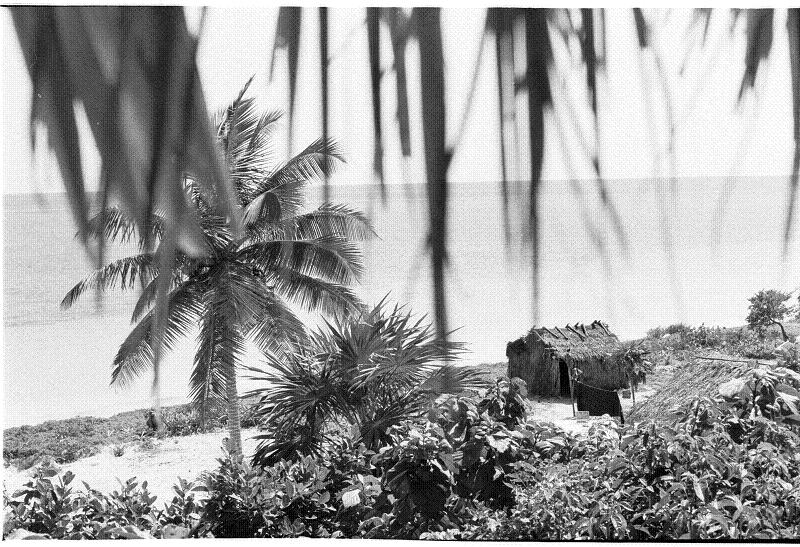

















Thanks for the picture from the 1977 reunion. As you say, “a variety of interests, attitudes about militancy, focuses, and approaches to politics were represented.”